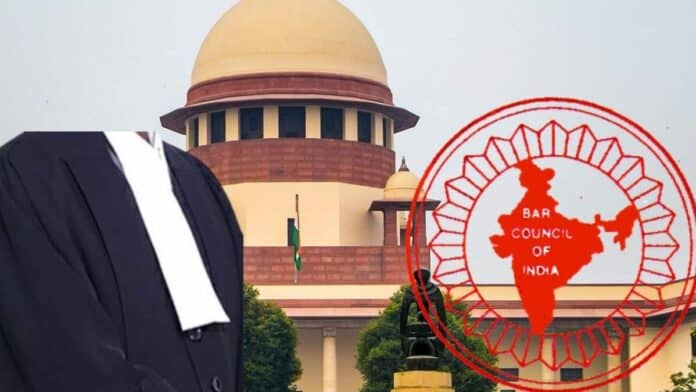Preventing courts from functioning is “not acceptable”, the Supreme Court said on Monday, and asked the Bar Council of India (BCI) to file an affidavit setting forth what action has been taken when bar associations have called for strike in the last one year.
The apex court, which was hearing a contempt petition filed by NGO ‘Common Cause’ over alleged violation of the top court order against strikes by lawyers, said the real issue is that the working of courts should not be impeded.
A bench of Justices S K Kaul and Sudhanshu Dhulia said the courts of justice cannot stop functioning. People are not getting bail due to large volume of cases, it said.
“When abstention of work takes place, it becomes very difficult for the courts to accommodate. These are practical problems,” the bench said, adding, “when you stop the working of the courts, that is something not acceptable.”
BCI Chairman and senior advocate Manan Kumar Mishra told the bench the top bar body has framed rules on the issue.
Advocate Prashant Bhushan, appearing for the NGO, said they have not received a copy of the rules, and even today there is a lawyers’ strike in the Delhi High Court.
Lawyers of the Delhi High Court abstained work on Monday at the high court bar association’s call for a “token protest” against the transfer of Justice Gaurang Kanth to the Calcutta High Court. They were complaining about the reduction in the working strength of judges in the high court.
“BCI seeks to place on record draft rules for consideration and submits that if this court gives its imprimatur (formal approval), then the rules can be framed. Copy has been handed over to the counsel for the petitioner today. He would like to examine the draft rules. The petitioner may place his suggestions in response to these rules within two weeks. List after four weeks,” the bench said.
Bhushan said these rules are not going to have any effect on strikes.
The bench observed many a time when such a problem arises, matters come to courts and the courts have to intervene and pass orders.
Referring to a matter pertaining to protests by lawyers last year for establishing a permanent bench of the Orissa High Court in the western part of the state, the apex court said it had to pass orders in that case.
“The real issue is that court working should not be impeded,” it said.
“Why does not it happen in the Supreme Court? Because there is a thought process that the working of the court should not be disrupted. There may be differences in point of views. Everybody is entitled to have a different point of view,” Justice Kaul observed.
Also Read
The bench asked the BCI to file an affidavit within two weeks “setting forth where any bar associations have called for strike in the last one year and what action has been taken.”
While hearing the matter in January this year, the apex court had flagged the delay in coming up with a concrete plan for preventing lawyers in states from going on strikes and asked the BCI to strengthen the rules of professional etiquette.
In a separate matter, the top court had passed an order on April 20 and said no lawyer can go on strike or abstain from court work. It had asked all high courts to constitute ‘grievance redressal committees’ headed by their chief justices to address the problems of advocates.




